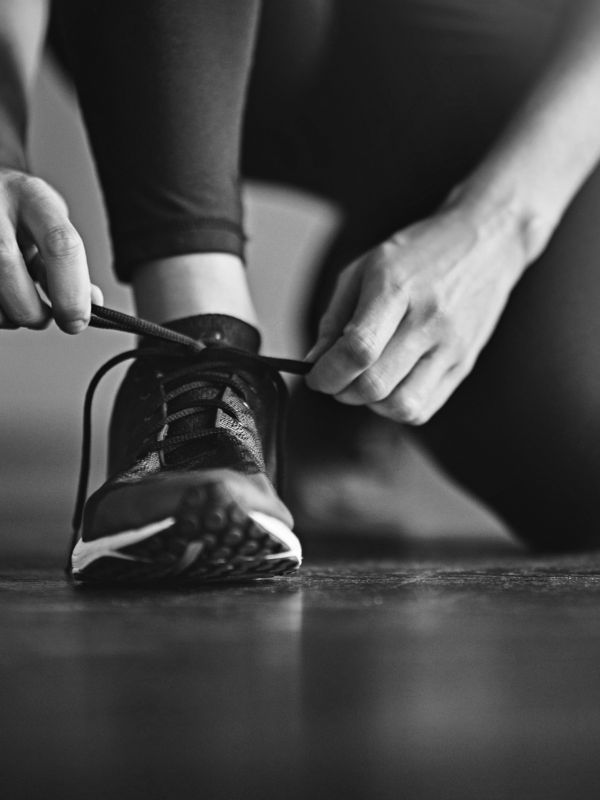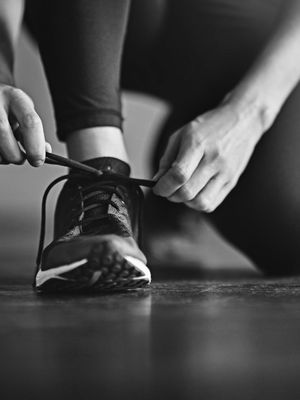
How To Level Up Your 5k
Be Patient
“If you feel you aren’t getting any faster when it comes to your 5k or still aren’t running as efficiently as you’d like, try to be patient with yourself, especially if you’ve just started running. New runners – you will get better with time. We all get gains early on in our journey with running and those gains get harder and harder to achieve – for example, Olympic athletes train for four years between the Games to try and shave off milliseconds. Be patient, and you will see results.”
Incorporate Speed Work
“The 5k isn’t an easy race, so if you want to get faster, or improve your time, you’re going to have to become more comfortable with being uncomfortable. Regular practice of your goal pace is a must in order to find familiarity with it. Incorporating intervals into your run is a great way to get faster – this is often called fartlek, a term which translates in Swedish as ‘speed play’. Start out with ten minutes of running drills and a gentle jog, followed by 30 seconds at your chosen pace (if you haven’t got a pace in mind, then imagine something that’d be challenging to hold for 20 minutes). Then, scale it back and jog slowly for two-and-a-half minutes, and repeat this eight to ten times. Walk it out for five minutes at the end. Try this once or twice a week to improve your 5k time.”
Beat Boredom
“If you are struggling with the mental block of getting past a 5k, try to rethink your workout. Remember that to run faster you’ll need to slow down, and to run further you’ll need a reason as to why – never underestimate the power of a ‘why’. Lastly, if you are really are getting bored after 30 minutes then there’s no need to go beyond that. Instead, change what you do during those 30 minutes to get more out of your run. Intervals or speed work are a great way to mix things up.”
Prioritise Recovery
“One of the biggest mistakes I see beginner runners making is doing too much, too soon. Movement is a medicine, although like other medications, dosage is important to manage. If you’ve never run before, try to leave a couple of days in between sessions to make sure you’re recovering properly and allowing your body to adapt to a new sport.”
Think About Technique
“For beginner runners, your technique will adapt as you come stronger and more resilient, and remember strength training can speed this process up to make you more efficient. If you are a more seasoned runner, you should still think about your technique – relax the shoulders and allow the elbows to move forwards and backwards, although not excessively. This will help stabilise the torso and save a little energy.”
Forget Stretching
“There is little evidence to suggest stretching benefits runners in any way. Generic stretching has little impact on injury prevention or DOMS (delayed onset muscle soreness), so spend that extra hour in bed instead – sleep is far more superior when it comes to recovery. The only time I do advocate stretching is to tackle a clients’ own personal mechanical circumstances.”
Avoid Injury
“The only thing that is going to stop you progressing with running is injury. If you are suddenly complaining of sore knees or ankles, it’s a sign your body isn’t happy. Lots of people are all or nothing personalities – they solely do running or they don’t do it at all. Doing too much too soon and neglecting the foundations of strength and conditioning are classic mistakes, but ones that are simple to address – rather than going in deep with six runs a week, try two runs and two strength sessions, and then slowly increase your running over time. This is a much healthier and efficient way to progress.”
Consider Nutrition
“Carbs are your friend when it comes to running, especially when it comes to speed work and harder runs. Aim for a 3:1 ratio of carbs to protein after a tough run for optimal recovery. Carbs are the body’s main fuel source for high intensity work, and are stored as glycogen in the muscles and liver. As the body can only store a certain amount of carbs, once reduced through a harder training session these stores need to be replaced. Protein is also vital for the growth and repair of muscle tissue. If you struggle with solid food immediately after a run, or need a snack to tide you over until your next meal, chocolate milk has the ideal carb to protein ratio.”
Visit Anthony-Fletcher.com
DISCLAIMER: We endeavour to always credit the correct original source of every image we use. If you think a credit may be incorrect, please contact us at info@sheerluxe.com.







